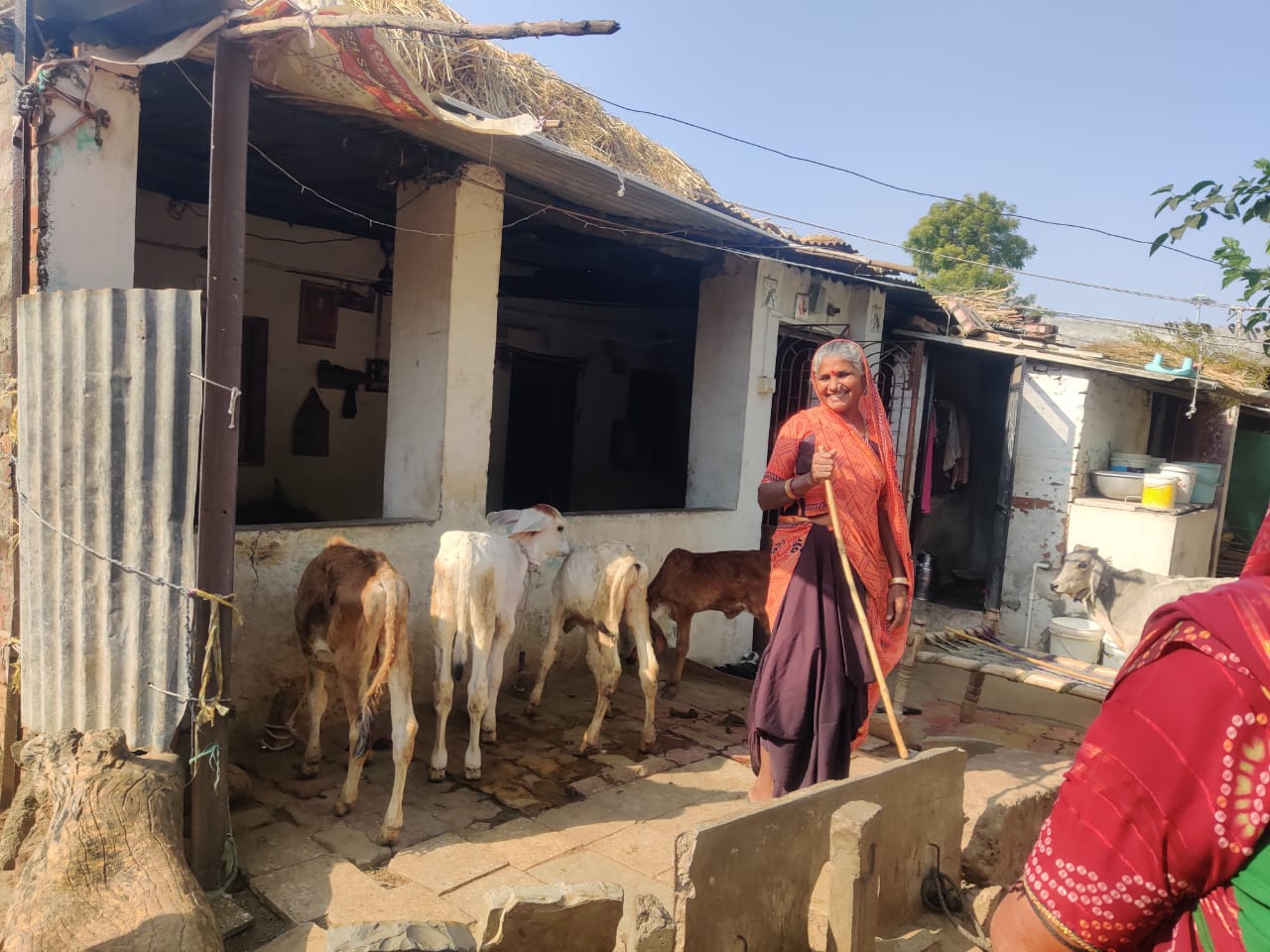Savitaben’s day starts at 6am. Helped by her mother-in-law Hansabenshe milks 12 buffaloes before getting onto other household chores. The family sells the milk to Banas dairy and earns Rs 30,000 every month.
Savitaben of Lunawa village in Tharad constituency of Gujarat works as a Patwari and also takes care of domestic chores. The work includes milking cattle and bathing them. Around 85% households in the village own more than 10 cattle and sell 40 to 50 litres of desi cow milk a day.
Speaking to News18, Savita is all praise for her mother-in-law. “Mere jitna toh yeh bhi kamati hain, meri toh income fixed hai but inki income ki koi seema nahi hai. (She earns as much as I do. My income is limited but my mother-in-law earns as much as possible depending on the milk our cattle gives),” she says.
The family believes that women have become major contributors to family income following government schemes on promoting women entrepreneurs.
“Our family will not say anything if I sit in front of our elders on the khat but our neighbours would say ‘now that your daughter-in-law is earning, she has stopped respecting elders’,” jokes Savita. She is mindful of her ghunghat in the presence of elders.
Savita is not only financially prudent, but also politically aware. She knows which candidate is contesting from which party and that the BJP candidate is the chairman of Banas Dairy.
She also knows that she can avail loans at minimal rates under various schemes by both state and central governments and can prosper in the dairy business.
“Bad mein business karna hai (I want to expand the business). We want to sell our homemade dairy products by labelling them as ours. It is pure and authentic,” says the Patwari.
The family has started venturing into organic vegetables as well. A family member, Smarut bhaihas waited two years to see profit after PM Narendra Modi gave the call for organic products.
“I was suffering losses for two years, but then the third year, I broke even. If we want our country to be prosperous, its health needs to be looked after. So I started growing only organic vegetables,” he says.
Around 300 km from Lunawa is Anand’s Vidyanagar, where women beneficiaries of government schemes have a similar story to tell. They have made Sakhi Samuhs to aid each other in getting financial help from the government.
Mahalbenwho has been living in Vidyanagar for almost 10 years, says two of her daughters received scholarships from the government. She herself got a cylinder under the Ujjwala Yojana. “I got ration during Covid-19 pandemic. We have water in our taps,” says Mehalben.
Few other houses in the colony have dairy cattle and their livelihood is based on the milk they sell to the dairy. Many say they received valuable help from the government during the pandemic. Each family here earns up to Rs 10,000 a month depending on the quantity of milk they sell.
“We have got food, we have money in our accounts as pensions. We have tap water and cylinder. I have got a sewing machine and my daughter-in-law stitches clothes and earns money,” says Jeevtiben who is in her 80s and knows only one “party” — Narendra Modi.
What stands out for the women here is the government’s Nal Se Jal scheme. “Nal Se Jal yojana has been successful. Earlier, we used to go to the one tap and wait for water. Now, we get water in our homes. Shanti lagi, kaam karwama, pani bharo, kapda dhowama, shanti panni padi,” says Vijuben.
Ujjawala Yojana, too, has takers but the price of the gas cylinder pinches many.
Ushaben Solanki runs three sakhi mandals here. “We have availed loans worth Rs 7 lakh. I bought an auto that is driven by my husband. I am also bank Mitr. Many women in our Sakhi Mandal are engaged in animal rearing. Some have taken loans for their daughters’ marriages,” she says.
Renukaben says she joined a Sakhi Mandal seven years ago. “We received help during Covid. I bought a sewing machine and I stitch clothes. I took out two loans. I earn approximately Rs 6,000 every month. I but milk, vegetables etc for the house with my own money. I don’t have to ask my husband for money. My husband is a mistry and earns Rs 8,000 if he works night shifts as well,” she says.
Read all the Latest Politics News here
